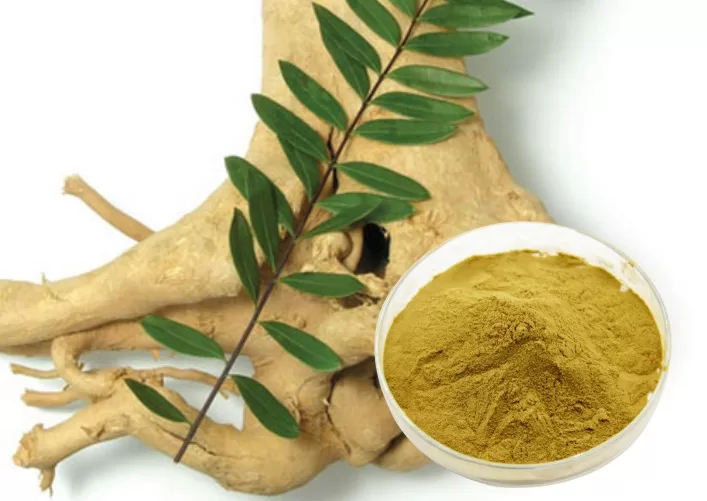Testosterone, which is often written as “T,” is a hormone that is made by a man’s testicles. It also has a role in the growth of hair and the development of sex organs like the penis and the prostate. Muscle and bone development are also affected by it. It improves a man’s sense of overall well-being as well as his ability to function sexually. Testosterone is necessary for the synthesis of sperm as well.
What exactly is a low testosterone level?
Hypogonadism is an alternative name for this medical disease. A “T” level that is below the usual range, which can vary greatly from person to person, is considered to be low. A blood test is what is used to measure it. Problems with erections or a decrease in the sexual drive are two signs or symptoms that may point to low testosterone levels.
It is recommended to check testosterone levels first thing in the morning, and any abnormal test results should be rechecked. Testosterone levels change throughout the day, and a man’s T level will change from one test to the next. Testosterone levels are not consistent.

Is there a link between low testosterone levels and infertility, and if so, is it treatable?
Infertility is not brought on by low testosterone levels. In reality, hormones other than testosterone are what encourage the creation of sperm in the body. Sperm can’t be made without testosterone, but the amount of testosterone in the testes, which is the organ that makes sperm, is much higher than the amount in the bloodstream. Even if a man has low or borderline T levels, he may still have enough T to make sperm. Sperm production requires sufficient T levels.
Consideration for treatment should be given to males who have low T levels as well as the symptoms of low T. Low testosterone levels in men can be treated with gels, patches, shots, or pellets that can be put under the skin.
Every possible course of treatment comes with both positives and negatives. In the United States, the number of men getting treatment for low testosterone has gone up a lot in recent years. Low testosterone treatments are sold directly to patients through more and more forms of media.
How does testosterone treatment lead to an inability to have children?
Infertility is a potential risk associated with treatment with testosterone. One way that testosterone treatment reduces the amount of sperm made is by lowering the levels of follicle-stimulating hormone (FSH). FSH is needed to make more sperm, so a drop in its levels is important.
In most cases, infertility caused by testosterone medication can be reversed. It’s likely that men who have just been taking testosterone for a shorter amount of time may recover more swiftly. In a very small number of cases, infertility cannot be treated successfully.
People often think that testosterone in the form of shots or pellets is more likely to cause infertility than testosterone in the form of gels. However, any form of testosterone supplementation can mess up the normal balance of hormones that are needed to make sperm.
Consequently, what does the use of herbs have to do with any of this? According to the results of a number of studies mentioned in this article, different types of herbs may have a positive effect on a number of things, such as the amount of testosterone, the number of sperm that can move, and more.
So, in this article, we’ll look at a number of plants that may help boost male fertility and list the best native herbs and foods for raising testosterone levels. We will also list the best herbs and foods that can naturally raise testosterone levels. We also talk about things you should stay away from and other ways to increase testosterone production.
But First The Herbs
Ashwagandha
Ashwagandha is an herb that has been used as medicine for thousands of years. It comes from India and is a part of Ayurveda, which is a traditional form of medicine in India. Withania somnifera is the scientific name for ashwagandha. Even though many other parts of the plant are used, most of the useful ingredients and preparations are found in the root.
In a study with 42 male participants and a placebo control group, it was found that taking 675 milligrams of ashwagandha per day for 90 days increased many important fertility markers by a large amount.
After 90 days of treatment with Ashwagandha, sperm counts were increased by 167%, motility was increased by 57%, semen volume was improved by 53%, and testosterone levels were boosted by 17% compared to where they were when the trial began. Those individuals who were given a placebo did not show any signs of the aforementioned improvements.
This Ayurvedic herb may help increase sperm health by lowering levels of stress, which is one of the ways it works.
There is evidence that shows that stress has a negative effect on male fertility. Chronic stress might make it harder for the body to make testosterone and luteinizing hormone (LH), both of which are important for sperm growth. In a similar way, a number of studies have shown that ashwagandha may help people deal with stress in important ways.
According to the results of another study, people who took only 240 milligrams of the ashwagandha herb for sixty days had similar effects, such as a 23% drop in their morning cortisol levels and a connection with how worried and stressed they felt. Furthermore, there has been a marked improvement in the testosterone level resulting in higher sperm count, quality, and mobility of sperm.
Shilajit
Shilajit is a natural chemical that has been used for hundreds of years in Ayurvedic medicine. It has the consistency of tar and is taken as a supplement. Shilajit is also considered to be another “herb.”
There have been many different claims made about its positive effects on male fertility. Several sperm parameters got better after taking Shilajit for three months, according to a single study. There was a 12–17% increase in sperm motility and a 61% rise in sperm count among the men who participated in the trial and saw it through to completion.
According to the findings of another study, total testosterone levels rose by 23%, while free testosterone levels rose by 19%.
Synergistic effects between Shilajit and CoQ10 are yet another one of the extraordinary ways in which Shilajit may improve male reproductive health. CoQ10 is a chemical that has powerful antioxidant action and supports the mitochondrial function of cells, which is how it generates cellular energy. CoQ10 has been studied a lot and is well known for its ability to improve sperm count, movement, and other things.
Tongkat Ali

Tongkat Ali, also called Eurycoma longifolia, is a tree and shrub that grows in Southeast Asia. It is often used to treat a wide range of health problems in the region’s traditional medicine.
In a way similar to that of the herbs we’ve already talked about, it might help with sperm count, motility, and other male fertility issues. In a study with 75 men, it was found that taking 200 milligrams of Tongkat Ali every day increased both the number and movement of sperm.
Even though the results were a little different each month compared to the starting point, there was a big improvement in most cases in terms of count, motility, volume, and shape.
The use of the Tongkat ali plant can lead to an increase in the number, movement, shape, and size of sperm. During supplementation, there were a total of 11 unplanned pregnancies. Six of these pregnancies happened in the first month, and five happened in the second month.
Fenugreek
Fenugreek is a plant that looks like a short herb. Its scientific name is Trigonella foenum-graecum. Fenugreek has been used for thousands of years as a traditional medicine and as a common spice in Indian cuisine.
When given 500 milligrams of a patented fenugreek extract that was tested and found to have 20% protodioscin, 85.4% of the people studied had more sperm, and 14.6% had changes in the way their sperm looked. The volunteers in this study ranged in age from 35 to 65 years old. However, there hasn’t been a lot of research done on the effects of fenugreek on male fertility.
Tribulus Terrestris
The tiny, leafy plant known as Tribulus terrestris can also be referred to as puncture vine, goat’s head, and other similar names. It is found in many parts of the world. In both Traditional Chinese Medicine (TCM) and Ayurvedic medicine (Ayurveda), the fruit of the plant as well as the root have been utilized for a significant amount of time.
Both the motility and the count of human sperm were improved in an in vitro study that used extracts of the Tribulus terrestris herb. The study included forty different male participants.
In another study with 65 men, giving 250 mg of Tribulus extract made a big difference in how many sperm there were and how well they moved. However, there has only been a very small amount of research done on the effects of Tribulus terrestris on male fertility.
Maca Root
The root of the maca plant, which is native to Peru, has a long history of use as a fertility and libido booster for men. Maca is also known as Peruvian ginseng. The scientific name for maca is Lepidium meyenii, but it’s also been called Peruvian ginseng. Maca is grown in Peru.
Because maca is a cruciferous vegetable, it is genetically related to vegetables such as broccoli, cauliflower, and kale, in addition to other more common veggies. It has been used in Peru for a long time in cooking and medicine, and in recent years it has become very popular as a supplement that comes in both powder and capsule form.
The root of the plant is the most important portion of the plant in terms of its medicinal and edible properties. Most of the time, the root is dried and taken as a powder, but it can also be taken as a capsule or a liquid extract.
In a short study, nine men who took either 1500 mg or 3000 mg of maca root saw an increase in semen volume, an increase in sperm count, and better sperm motility after four months. The concept that maca may actually improve sperm quality was backed by a meta-analysis that looked at five different, smaller studies, including the one that was discussed previously.
Some good and useful advice:
Make sure you get enough rest.
Even though everyone seems to be aware of the significance of getting enough rest, you might not be aware of the fact that your sperm are extremely reliant on it. The amount of time spent sleeping and the quality of that sleep has been found to be connected to sperm count, morphology, motility, and concentration across a number of quite large studies.
Steer clear of toxins.
Several studies have shown that being exposed to toxins is very bad for the health of sperm. This is true even though the chances of men being exposed to dangerous chemicals in the environment are much higher now than at any other time in human history.
Toxins can be found in the food we eat, the cookware we use, the bottles we use, and the cleaning products we use. It can be challenging, but you should make an effort to reduce the usage of goods that are known to contain toxins and pay attention to the food you eat and the way it is prepared.
Quit smoking.

It shouldn’t come as much of a surprise that smoking is extremely damaging to sperm health given that it seems to be bad for just about every area of human health, yet it still is. Many studies have shown this to be true, so if you are still a smoker, it is in your best interest to try to quit and, if you need to, get help from a trained professional.
Limit drinking.
Heavy alcohol use, like smoking cigarettes, has been associated with sperm that are less motile, have a lower count, and have other reproductive issues. If you are a heavy drinker, we strongly recommend that you quit; nevertheless, if you don’t, no amount of herbs will be able to help your sperm.
Get some sun daily.
Vitamin D insufficiency affects approximately forty percent of adult males in the United States. A lack of vitamin D affects fertility in the same way that not getting enough of other vitamins does. It has been linked to sperm motility, count, and other things.
If you don’t get a lot of natural sunlight, it’s probably a good idea to go out and get some artificial sunlight.
Get some antioxidants regularly
Fruits are laden with antioxidants that have been found to enhance male fertility, but they also contain a lot of sugar, which has been shown to have some adverse effects on sperm.
Because of this, it is likely to be more beneficial to take antioxidant supplements in order to improve the quality of your sperm.
The Crux of the Matter
It sounds like you’re on the right track in your search for herbs that can increase the health of your sperm. Studies have shown that different herbs can improve different parts of a man’s fertility, such as the number of sperm, how they move, and how they look.
Because the development of sperm takes approximately 70–90 days, you need to make sure that the steps you take to support your male fertility are carried out in a consistent manner for as long as possible. This makes sure that your sperm have a good place to grow and develop while the baby is growing inside you. This makes sure that your sperm have a good place to grow and develop while the baby is growing inside you.
Keep in mind, though, that you must seek the advice of a medical professional if you are taking any medications or have any health problems.
Disclaimer: This information is for educational purposes only, and no medical advice should be inferred from it. Before changing your diet or adding supplements, please talk to your doctor.
The author’s views are his or her own. The facts and opinions in the article have been taken from various articles and commentaries available in the online media and Eastside Writers does not take any responsibility or obligation for them.
Note: Contact our Writers at www.eastsidewriters.com for writing Blogs/Articles on any niche. We have experts in various domains from Technology to Finance and from Spirituality to Lifestyle and Entertainment.







Pingback: Why Feel Guilty Doing Something Which Is Normal! Masturbation
Pingback: Testosterone levels and Infertility- Males' most Haunting and depressing issue - Eastside Writers
Pingback: Amazing Benefits Of Drumsticks Form Treating Respiratory Illness To Lowering Blood Sugar - Eastside Writers
Pingback: The Multiple Benefits Of Safed Musli In Maintaining Health And Boosting Energy - Eastside Writers
Pingback: Why CoQ10 Is The Drug Of Choice For Many When It Comes To Health Management - Eastside Writers
Pingback: Unlocking the Secrets of Brain Hormones: Understanding How These Powerful Chemical Messengers Regulate Your Body's Functions - Eastside Writers
Pingback: Debunking 7 Common Penis Myths: Separating Fact from Fiction
Pingback: Uncovering the Secrets of Fig: From Ancient Food to Modern Medicine - Eastside Writers
Pingback: The Deadly Truth: Smoking And Its Effects on Human Organs and Mortality - Eastside Writers
Pingback: The Benefits and Popularity of Condoms: The Most Widely Used Contraceptive Worldwide - Eastside Writers
Pingback: Silent but Deadly: Unmasking the Menace of Prostate Cancer - Eastside Writers
Pingback: Embarrassing Menace of Pruritus Scroti: A Growing Boy's Silent Struggle with Itchy Scrotum - Eastside Writers
Pingback: Exploring the Complex Realities of Frotteuristic disorder: The Shadows of Non-Consensual Burning Desires - Eastside Writers